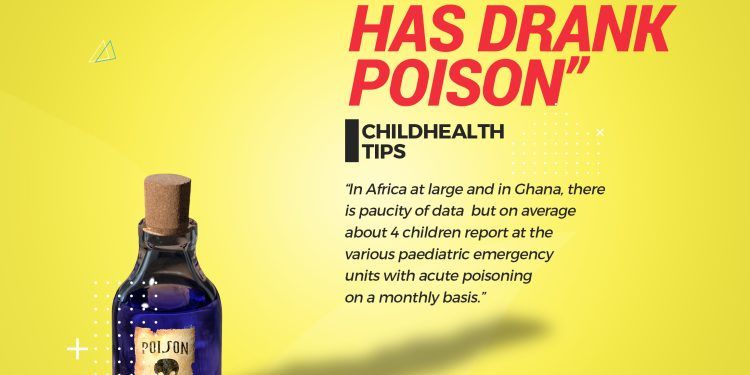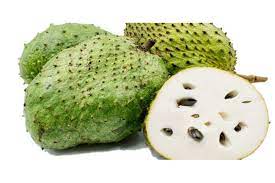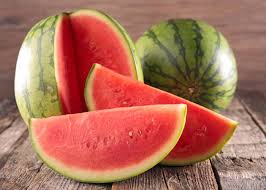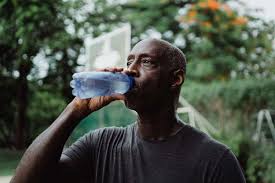A mother wails and cries for help!
A father screams and quickly picks up the child!
What should they do next?
According to the 2014 Annual Report of the American Association of Poison Control Centers’ National Poison Data System (NPDS), 1,326,789 toxic exposures occurred in children younger than age 20 years in 2014, and mortalities represented 7.5% of all fatalities reported to the NPDS in 2014
In Africa at large and in Ghana, there is paucity of data but on average about 4 children report at the various paediatric emergency units with acute poisoning on a monthly basis.
Common poisoning agents include pharmaceuticals, household products (e.g. bleach, cleaning agents), pesticides, poisonous plants and bites from insects and animals and ingestion of kerosene.
It is important to note that acute poisoning does not necessarily result from ingestion of large quantities of a substance.The commonest cause of paracetamol poisoning is repeated miscalculated overdoses to treat fever.
Do not think your child is too young to ingest poison;
As early as 4 to 6 months, infants start reaching for things and put everything in their mouth
Between 7 to 12 months Infants start to get curious, pull things down and put everything in their mouth
Between 1-3 years, children begin to imitate their parents, climb on things and put everything in their mouth
WHAT YOU MUST NOT DO
Do not store food and household cleaners together
Do not take medicine in front of children
Do not put kerosene, parazone and other chemicals in soft drink bottles or distilled water bottles
Do not store detergents and dishwashing soaps under the sink
Do not keep alcohol on the floor
Do not induce vomiting if child ingests poison.
Do not pour palm oil into the child’s mouth or smear garlic on the child
Do not shake the child
WHAT YOU MUST DO
If child inhales poison,
Get the child into fresh air immediately, open all doors and report to the hospital immediately
If poison spills on the skin,
Remove all clothes and rinse the skin with water for about 10 minutes, wash gently with soap and water and report to the hospital immediately
If poison splashes in the eye
Pour lukewarm water in the eye without forcefully opening it for about 15minutes and if the child is old enough, have the child blink several times while washing then report to the hospital immediately
If child swallows poison,
If child ingests hydrocarbons like kerosene and turpentine, remove stained clothes, wash the mouth and report to the hospital
If child ingests battery fluid, bleach, toilet bowl cleaner, soap, perfume, remove clothes and wash burned area/mouth with water, give sips of water or milk and report to the hospital immediately
If child ingested pesticides or poisonous plant, remove clothes if stained, wash the mouth and report to the hospital immediately
Remember to always report to the hospital with what your child ingested, inhaled or spilt on him or herself so as to guide the health professionals in their management.































